Committed to implementing and informing effective policies, sustainable economic development, community partnerships and financial stability we create VIBRANT communities.
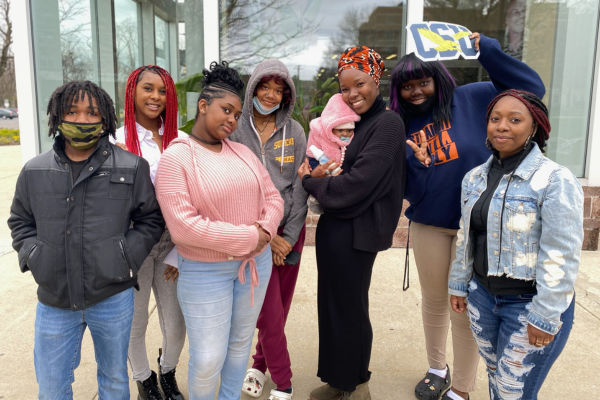
OUR WORK
Fostering resilience through a results-based, data-driven approach.
We place a strong emphasis on identifying and addressing challenges, using innovative and adaptive leadership to drive change and support actions leading towards measurable outcomes.
Human-centered & Investment-Forward
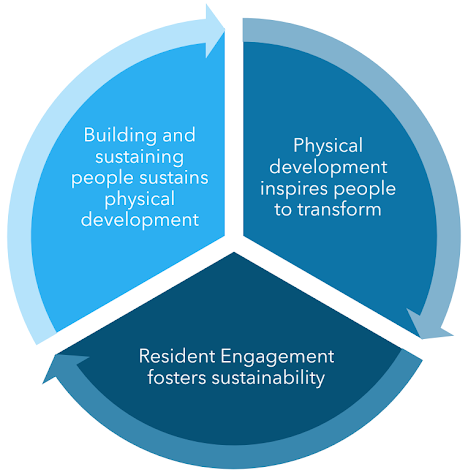
USI’s approach is centered on the synergy between physical development and human capital. We believe that the sustainable transformation of communities involves not just building spaces but also uplifting the people within them.
This approach emphasizes resident engagement and support systems that foster upward economic mobility, stable housing, educational readiness, and health and wellness. This is integral to how we achieve our mission of building vibrant, self-sustaining communities where every individual has the opportunity to succeed.
The Roadmap to Family Support
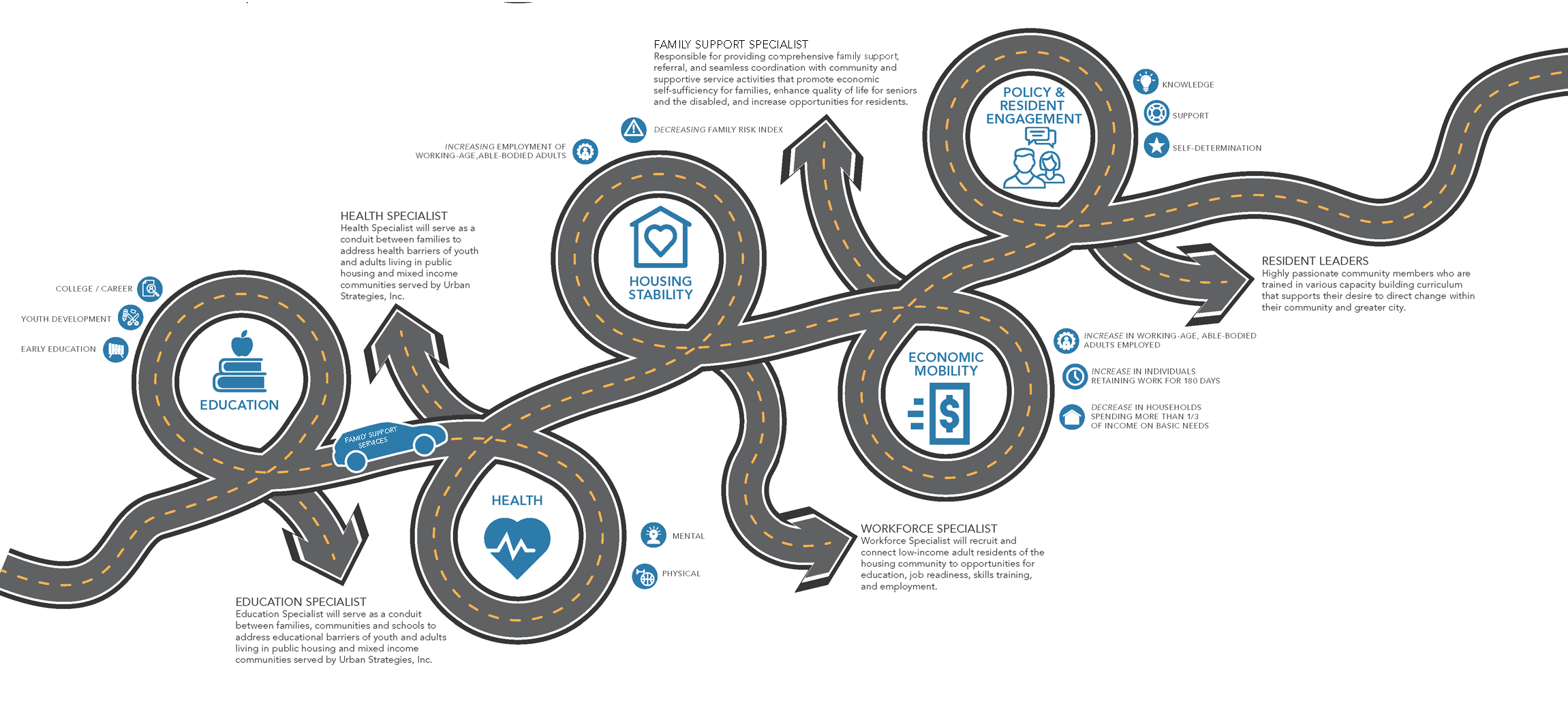
Our Framework & Methodology
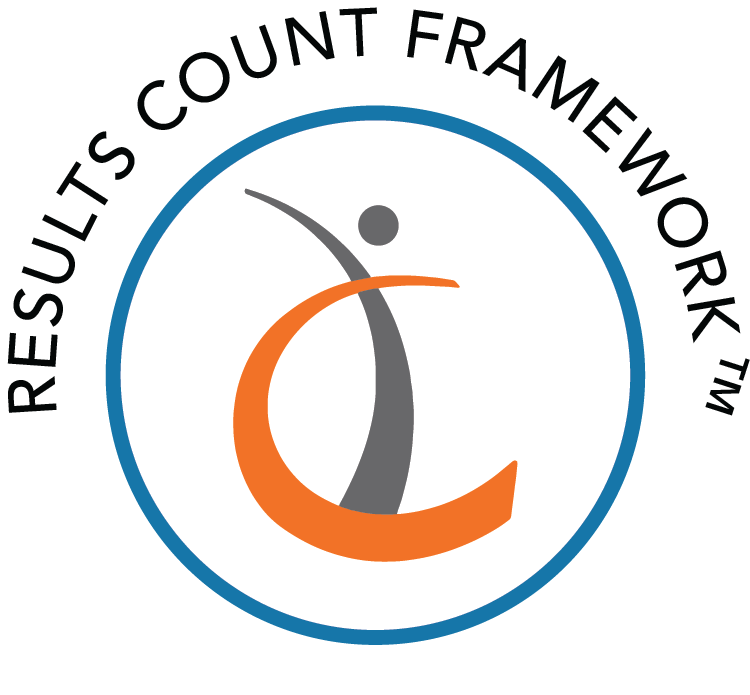
Results Count® Framework by the Annie E. Casey Foundation
As an official Annie E. Casey Foundation Results Count® Hub Organization, we leverage this framework to support system transformation and community stabilization. This approach is embedded within USI and our partners.
The framework’s core is focused on accelerating the achievement of positive outcomes for the children and families we serve. We see the deeply rooted challenges in our systems and actively work to promote impactful change and accessible growth for all.
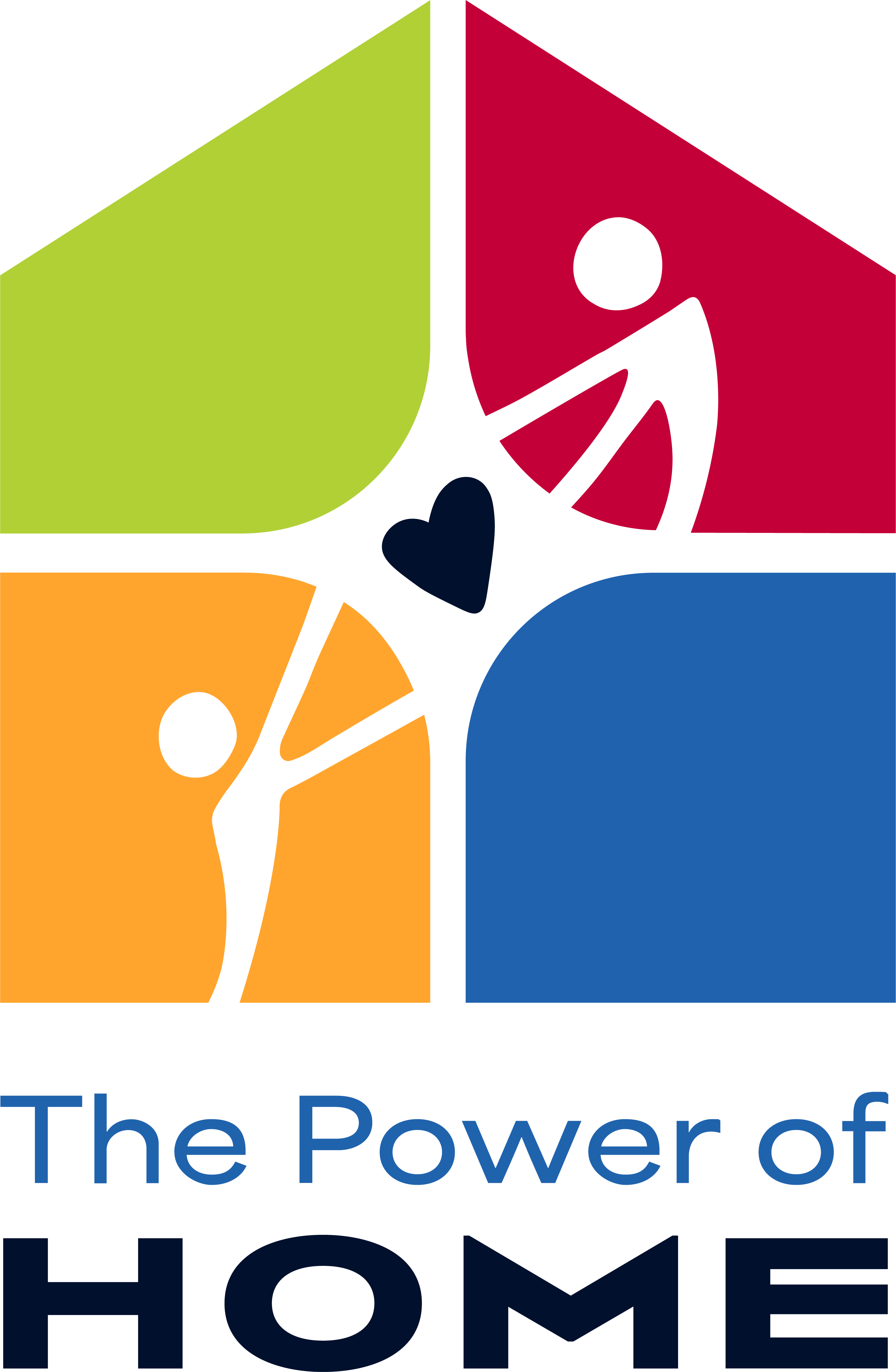
Scaling Success: Sharing Proven Strategies for Community Growth – Communities of Choice (COC)
Communities of Choice, a national forum of Choice Neighborhood Program grantees, was created to foster a wide-sweeping platform in which communities across the country can learn from and share knowledge with communities within the USI network.
COC offers a chance to connect, share best practices and innovations, receive mentoring and hands-on support, and experience meaningful engagement to lift our collective voice in the spirit of community development.
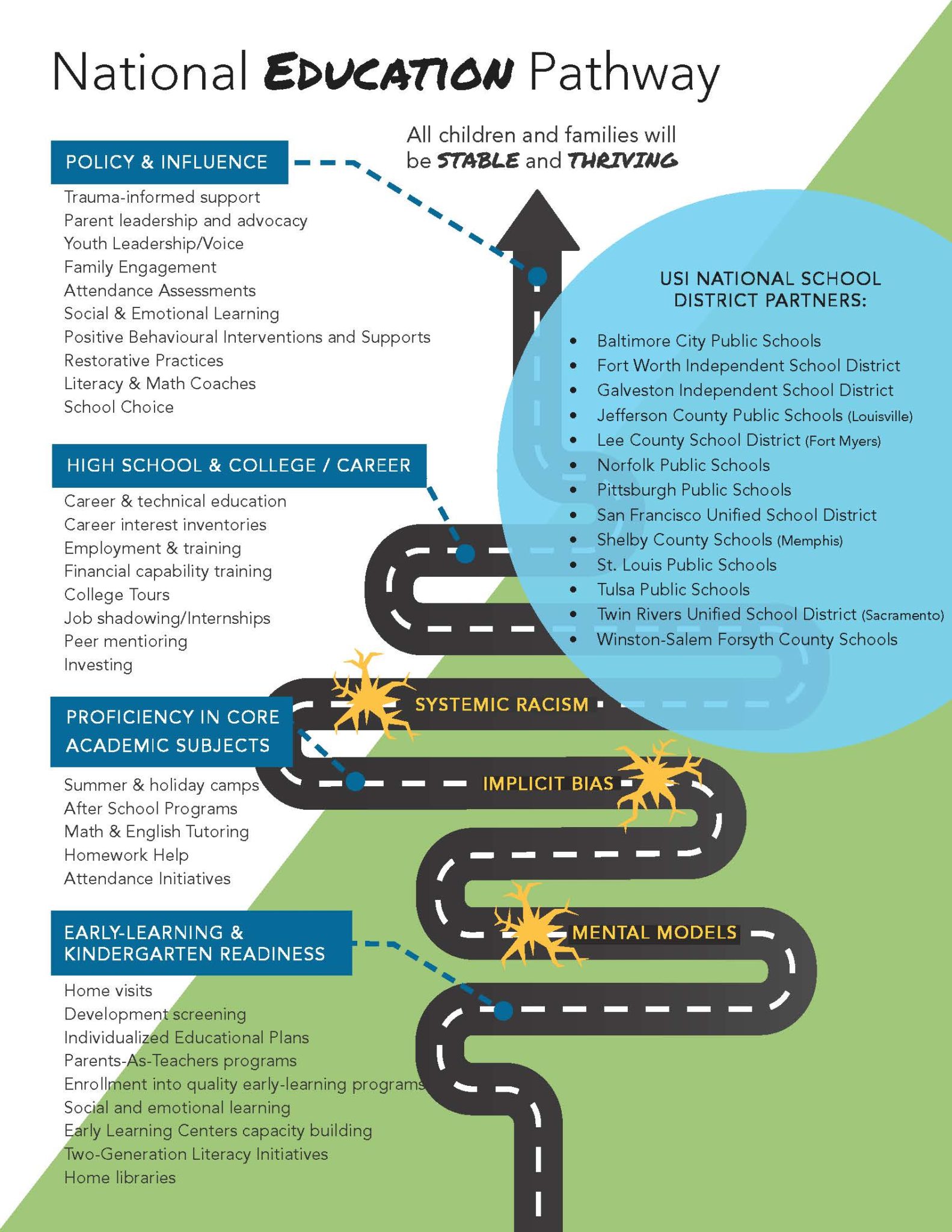

Award-Winning Education Solutions
Education is a key component of our work with the goal of accelerating families out of poverty, using a “Cradle-to-Career” educational approach and working with families across generations.
We intentionally connect youth with education opportunities while providing ongoing holistic support with their families and holding parents and children accountable. In addition, we support schools in 17 districts to tackle the academic achievement gap with academic and social-emotional support to students and professional development to educators and administrators.
In 2022, our work in communities across the country won the Catalyze Challenge Award, a joint venture among education funders including The Walton Family Foundation, The Gates Foundation, Arnold Ventures and Charles Koch Foundation. This award supports organizations that have developed pragmatic solutions to better connect education and careers for youth. USI’s innovation was Niche Innovators and Social enterprise, a program assisting youth living in assisted housing to gain paid work experience in the housing industry and then create their own social enterprise within their communities.
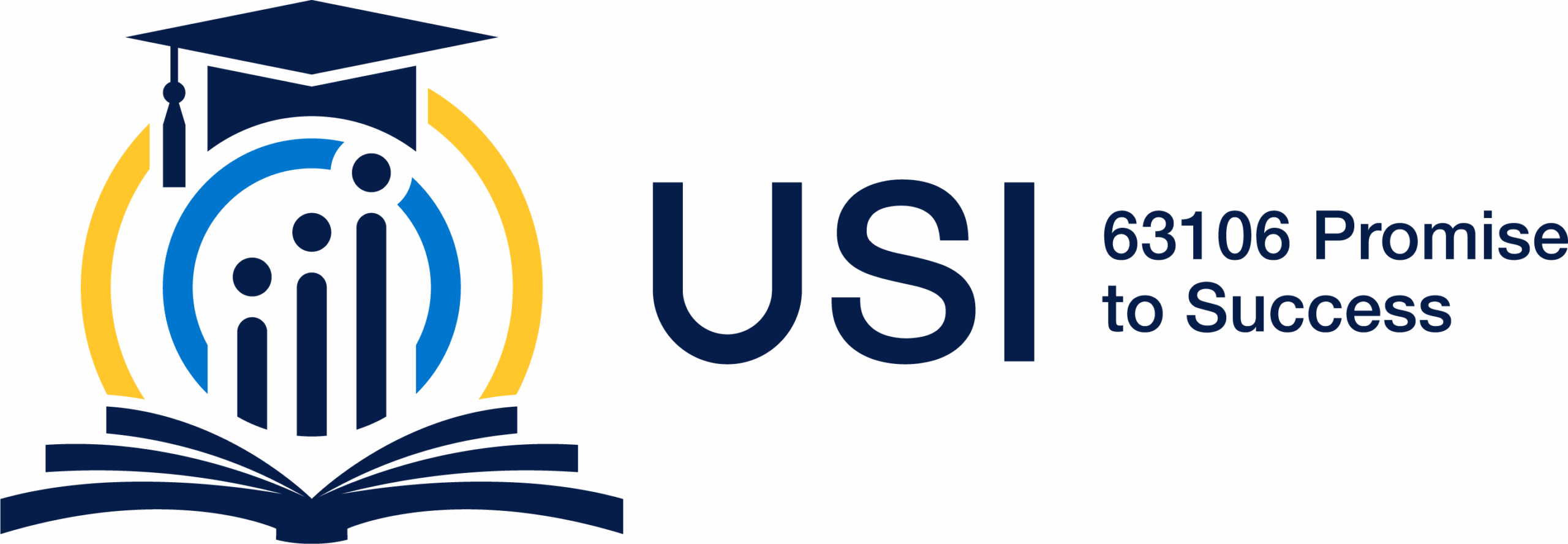
63106 Promise to Success Initiative
In 2023, we launched our 63106 Promise to Success Initiative, a program focused on revitalizing a St. Louis neighborhood in the 63106 zip code through educational and economic solutions. The initiative’s vision is to transform a St. Louis, MO neighborhood into a community where educational and economic opportunities for its residents by providing resources needed for families and youth ages 24 and younger to thrive.
With federal funding, Urban Strategies, Inc. has implemented a plan to work closely with the community to examine existing policies that perpetuate opportunity gaps. After analyzing those gaps, the community sets universal goals while using targeted community strategies to achieve them.

Community Development Financial Institution (CDFI)
As a certified Community Development Financial Institution, we play a pivotal role in funneling economic resources into disinvested communities. We provide financial services and support to spur economic growth and development. This includes offering loans, investments, and financial counseling, specifically tailored to uplift communities and stimulate local economies.
Our CDFI status enables us to bridge gaps in funding and resources, driving economic empowerment where it’s most needed.
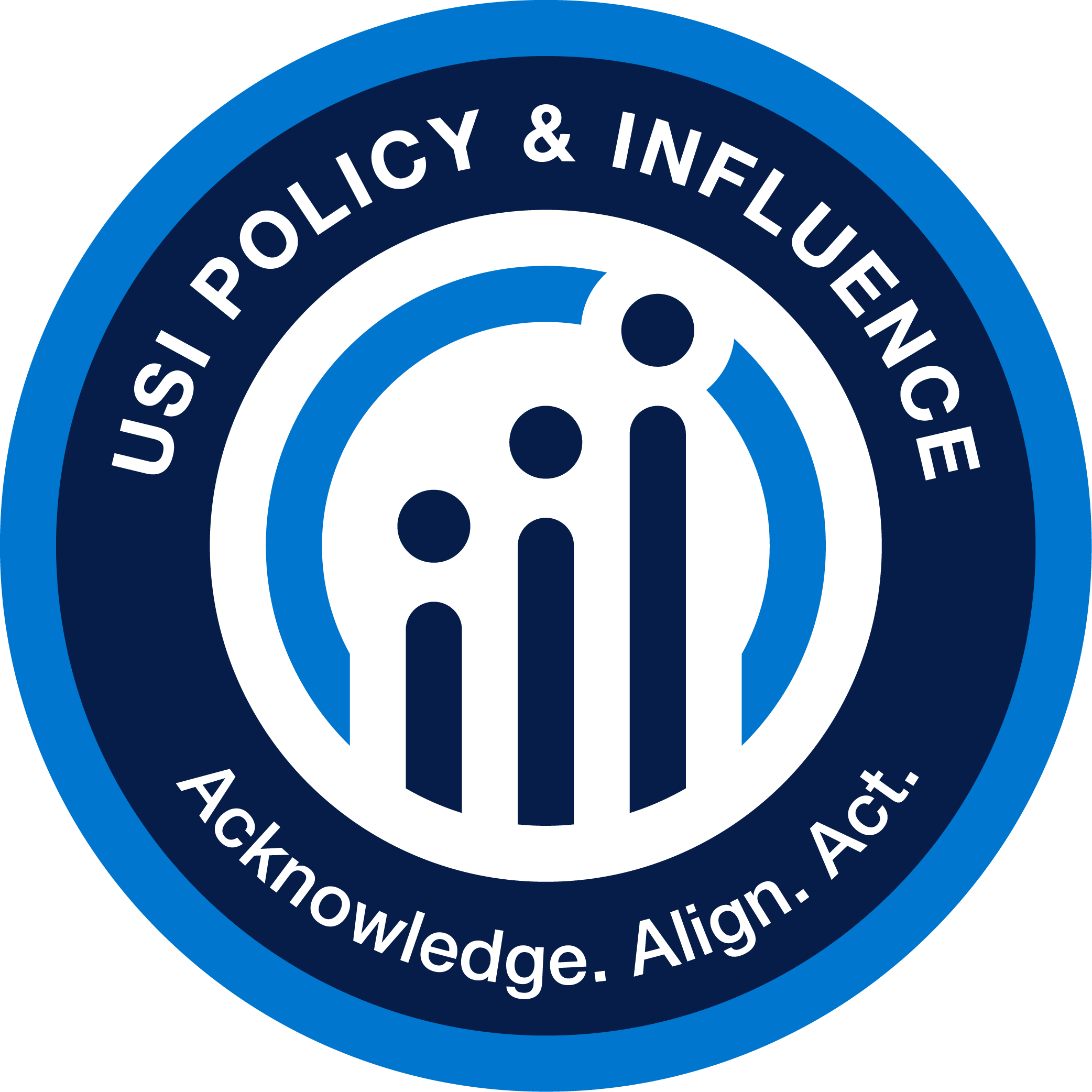
CommUnities in Action
The CommUnities in Action is USI’s strategic initiative to drive forward intentional investment of public-private funds and establish better ways for decision-making and results-based action plans for community transformation.
We focus on getting more support and resources to make every neighborhood more vibrant.
Frequently Asked Questions
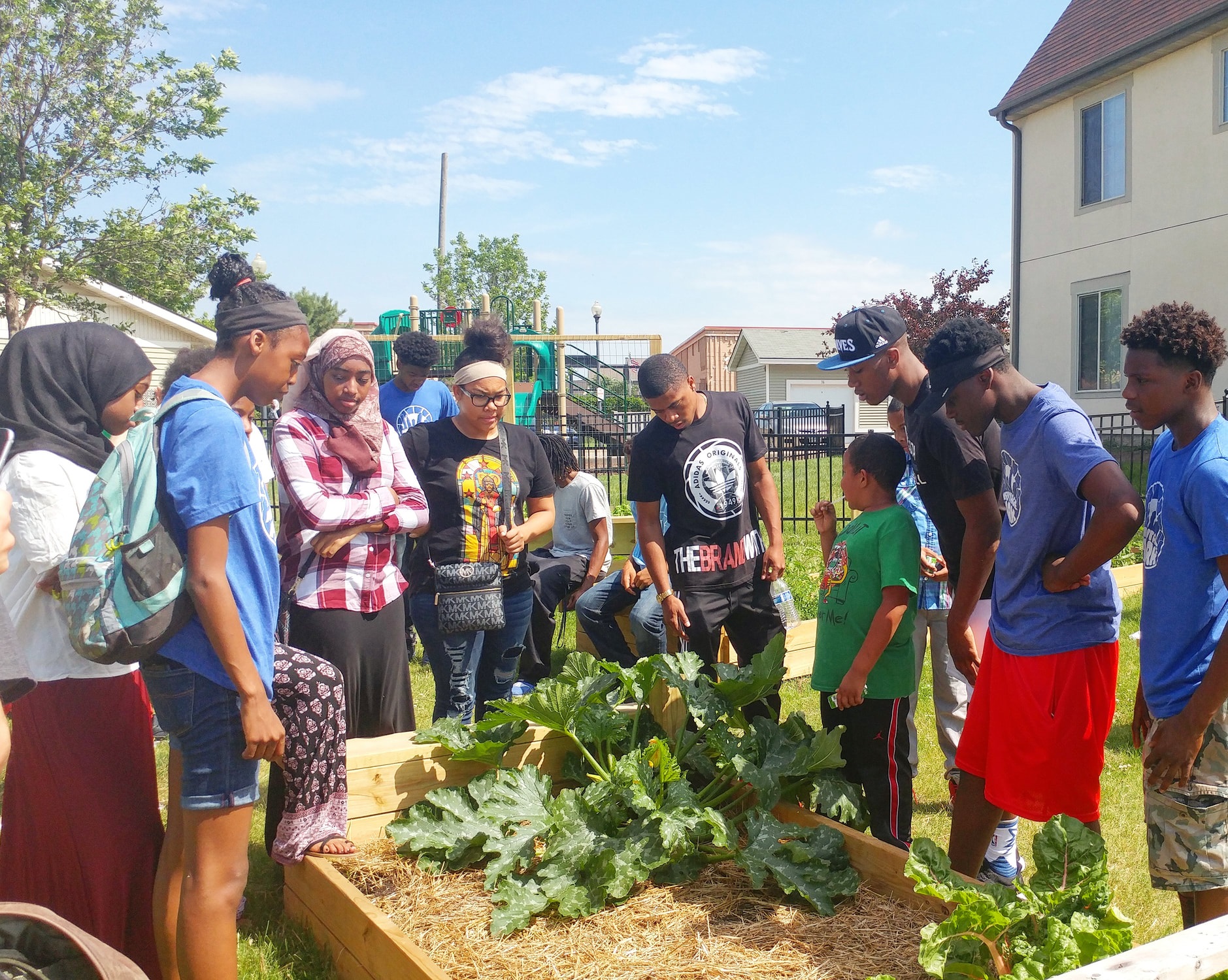
SUPPORT OUR WORK
Invest in our work to improve the lives of youth, families and communities across the US.
At Urban Strategies, Inc. (USI), we are passionate about creating opportunities for children and families to live stable, productive and prosperous lives.
Your donation allows us to provide critical support and tools, from housing and technical assistance to education and workforce development programs. Together we can give families an opportunity to define their futures and contribute to society.
